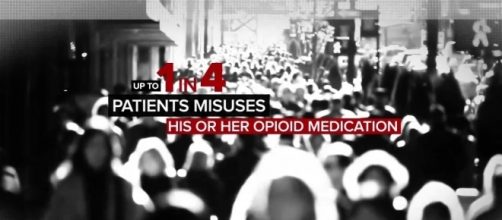The White House Commission on Combating Drug Addiction and the Opioid Crisis is urging President Trump to declare a federal state of emergency on the opioid crisis that is plaguing America. If this goes through on the federal level, the country will join the states of Florida, Arizona, and Maryland who have already declared a state of emergency regarding the epidemic.
The White House Panel has been in place since March and is chaired by Gov. Christie of New Jersey. Other members of the panel include Gov. Roy Cooper of North Carolina, Gov. Charlie Baker of Massachusetts, former Congressman Patrick Kennedy, and Harvard professor Bertha Madras.
What precautions will be taken if a state of emergency is declared?
Along with urging the White House to declare an official state of emergency on the federal level, the commission has made a series of additional recommendations that they believe must be taken.
For the past 50 years, there has been a federal rule that Medicaid can only cover residential addiction treatment programs only if they have 16 or fewer beds. This rule prevents many addicts from being able to receive proper treatment when they seek it. The commission has suggested waiving this federal rule, thereby reimbursing Medicaid programs at the state level to cover addiction treatments at facilities that exceed the 16-bed rule.
The panel also plans to require the doctors who are prescribing opioids to take a class in treating pain.
By making the class mandatory for doctors, the panel hopes to slow down the high speed of possibly unnecessary opioid prescriptions. Further, all police and law enforcement officials will be in possession of naloxone, a medication that is said to reverse the effects of an opioid overdose. This will also extend to the patient level, meaning that naloxone will be prescribed to patients in conjunction to the prescription of opioids to ensure that patients have it on hand.
By declaring a state of emergency, the panel and other health officials believe that it will call greater attention to how severe the opioid crisis is in America. Although it is known that it is a problem, many Americans forget about it if it does not impact their day-to-day lives.
By calling it a crisis on a federal level, it will show that it is a much bigger deal.
But just how severe is it?
According to a New York Times analytical report, drug overdose deaths is expected to exceed 59,000 - 65,000 in 2016, increasing 19% from the 52,404 drug related deaths recorded in 2015. Because drug related deaths are hard to predict, the exact numbers cannot be determined for 2016 until December of this year. However, if the numbers that are projected are correct, that will make the drug related death toll the largest annual jump ever recorded in the United States.
These numbers are only getting higher every year and 2017 is no exception -- the number of drug related deaths is expected to set a new record in 2017.
Taking all of this into account, it is unsurprising that drug overdoses are currently the main cause of death among Americans under 50.
The opioid crisis has been called the most dangerous and severe epidemic to hit America. The projected numbers of deaths related to overdoses have even topped the peak of the HIV/AIDS epidemic in 1995, where an estimated amount of 48,371 died. Additionally, Vox reported that the overdose related deaths of 2016 will even top the number of casualties in the Vietnam and Iraq. According to data retrieved from the national archives, 58,200 members died in the Vietnam War between 1955 and 1975. Another source reports that 4,841 military members have died in Iraq and 3,536 members have died in Afghanistan.
These numbers are high but do not reach the same magnitude as the 59,000 - 65,000 deaths that are related to drug overdoses.
With these shocking statistics, we can only hope that the White House panel continues to push the White House to take immediate action to combat this crisis.
If you or someone you know suffers from an opioid addiction, please consider calling the American Addiction Center's opioid addiction hotline at 877-760-5773.


